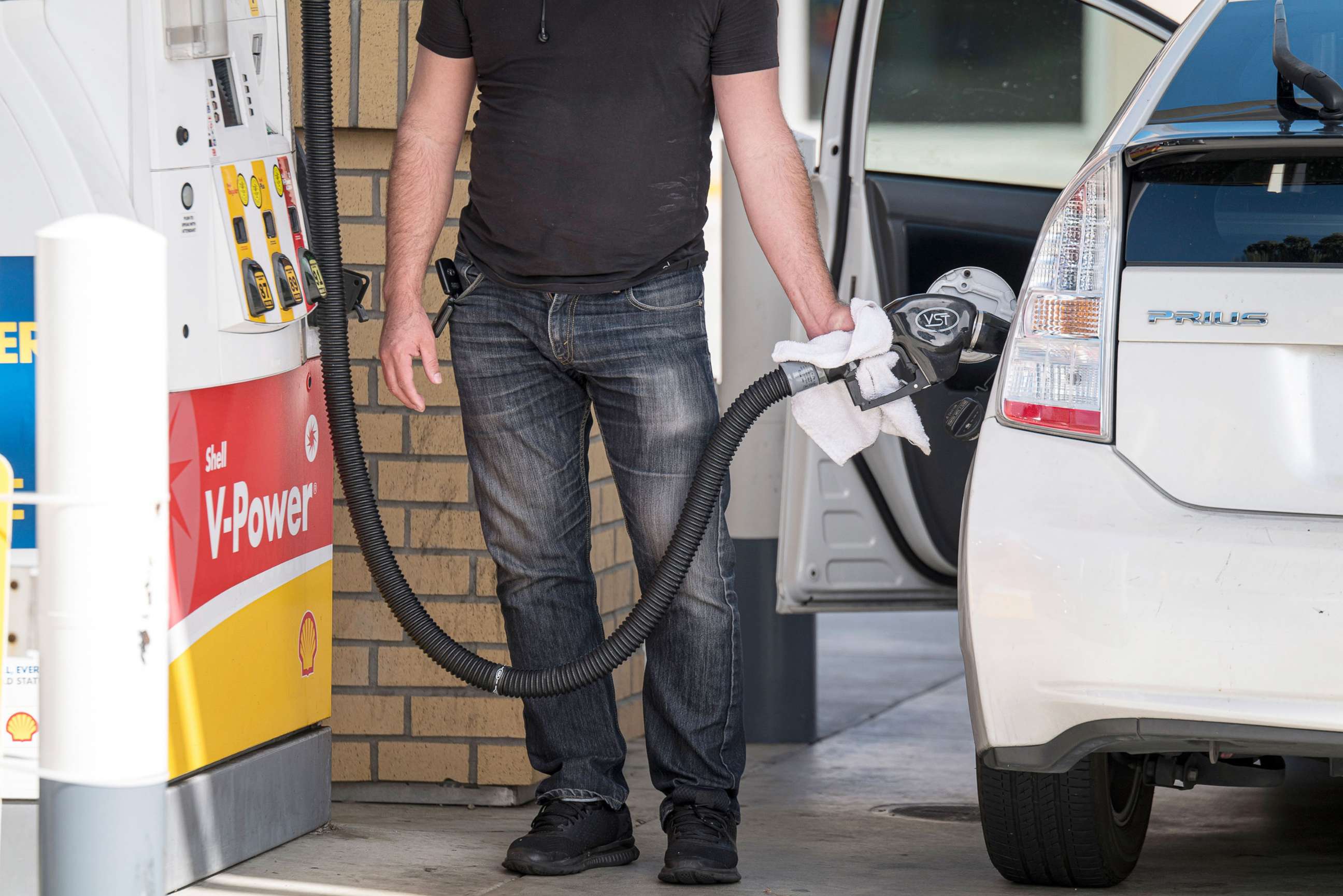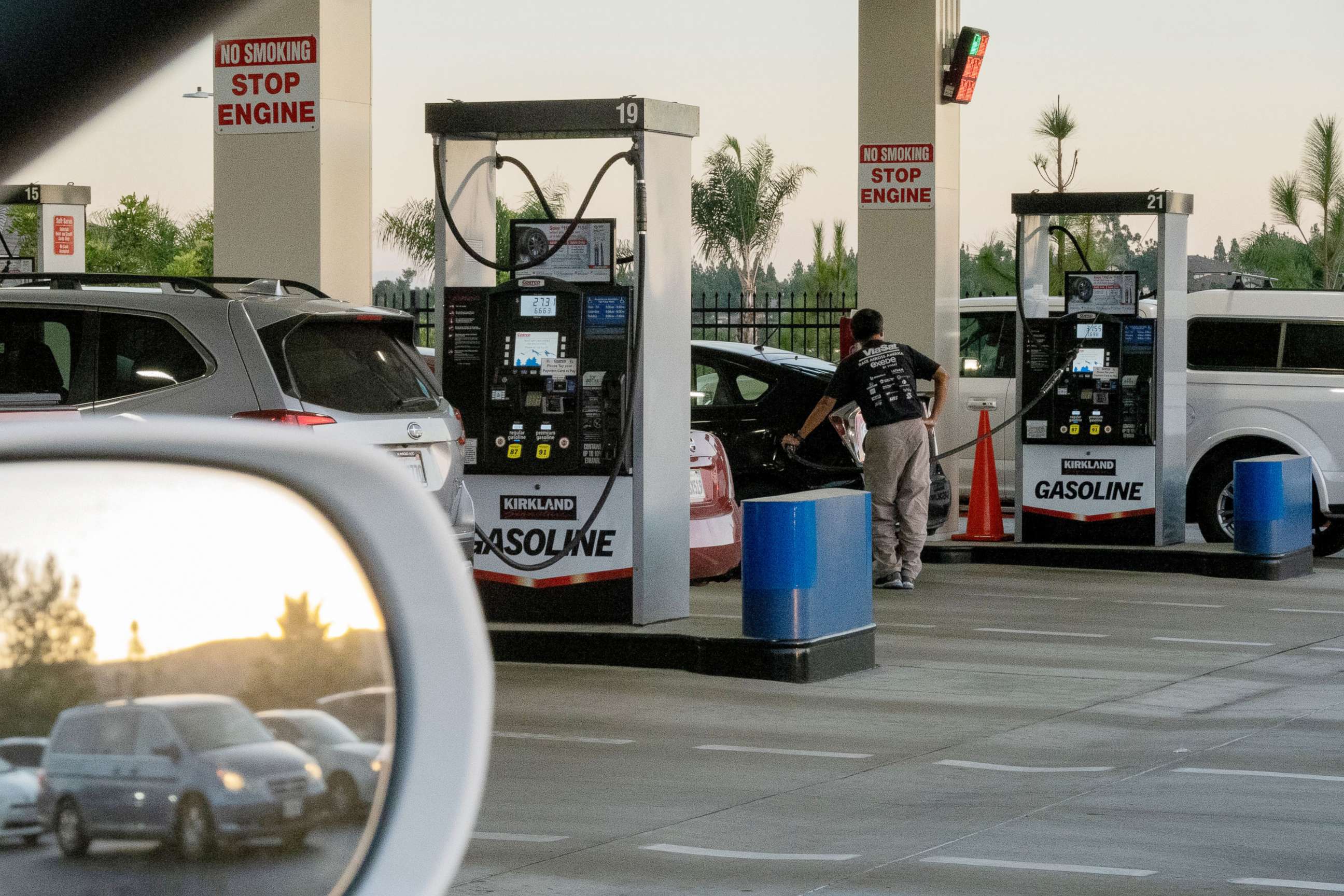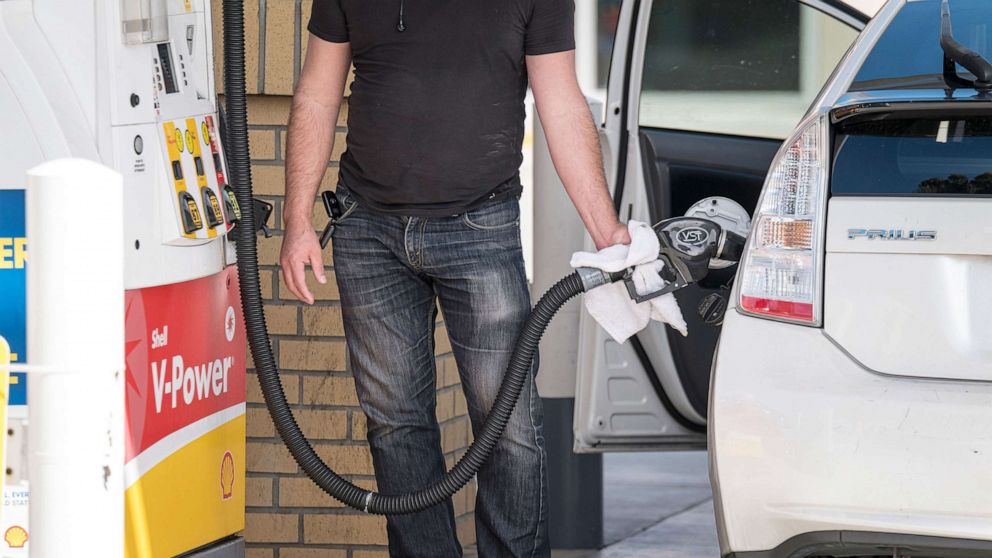Gas prices soar to record levels in California amid Ukraine crisis, tax hikes
Analysts are warning motorists in California to hold on to their wallets as a host of factors will take already record-high gas prices to new levels.
The state averaged $4.742 a gallon on Tuesday, about $1.20 more than the national average, according to AAA. Some counties, including San Francisco, are averaging over $4.90, according to AAA.
Patrick De Haan, the head of petroleum analysis at GasBuddy, which tracks gas prices across the nation, told ABC News that the statewide average is likely to cross the $5 a gallon average threshold soon.
"Everyone is going up the same but no one is going to match California's prices," he said.

De Haan said there were several factors, the biggest being the ongoing conflict between Russia and Ukraine. The political uncertainty over a possible invasion has affected oil prices globally, De Haan noted.
"We are subject to international supply and demand," he said. "How long it progresses through the summer depends on Russia."
California's regulations have also affected prices, specifically its gas tax of 51.1 cents per gallon, according to De Haan. The tax, which pays for road repairs and maintenance throughout the state, is one of the largest in the nation, according to the Federation of Tax Administrators, and has gone up with inflation.
"The taxes make a huge difference in the overall price. That's why you haven't seen as big of a jump in Oregon or Washington," he said.

Gov. Gavin Newsom has proposed to halt a scheduled gas tax increase, but has not received support from Democratic members of the state legislature, the Associated Press reported.
De Haan said that spring is around the time that gas prices tend to go up and there is very little that motorists who drive in California can do to avoid taking a financial hit at the pump.
He did offer one suggestion that could help drivers cut down their trips to the gas station: slow down. De Haan said that a car's mileage grows when a driver maintains their speed as much as possible.
"Slowing down a couple of miles per hour [and] not racing light to light can easily save you 10 to 15% in every tank," De Haan said.




